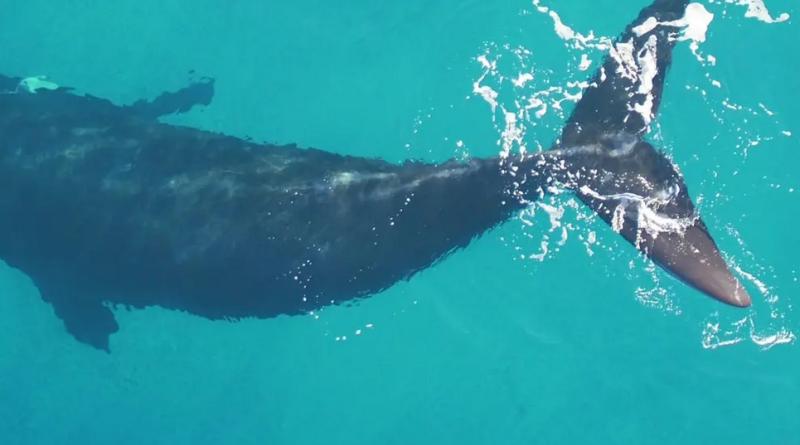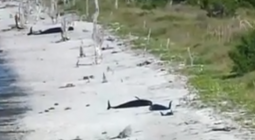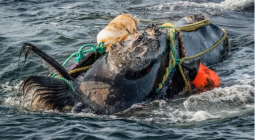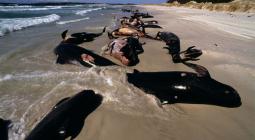Last gasp bid to stop Shell’s seismic surveys in whale breeding grounds

Scientists say use of shock waves could have devastating impact on health of marine life
Community groups are launching a last-chance bid to stop Shell using shockwaves in the Wild Coast of South Africa – a fragile ecosystem that is a vital whale breeding ground.
Last week a South African high court struck down an urgent application brought by environmentalists to stop the oil company’s seismic surveys to explore for petroleum systems along the Eastern Cape.
The applicants, which included Greenpeace Africa and fishing groups, had been seeking to stop the survey on the basis it could cause "irreparable harm" to the marine environment, especially to migrating humpback whales in the area.
But on Friday the Grahamstown High Court in Makhanda will hear arguments in application of an urgent interdict against Shell’s seismic survey brought by lawyers acting on behalf of the Amadiba, Cwebe, Hobeni, Port Saint Johns and Kei Mouth communities.
The application argues that Shell does not have the necessary environmental authorisation in terms of the National Environmental Management Act (NEMA) to lawfully undertake seismic exploration activities in the area.
The concerns raised by the communities are echoed by local and international experts in the fields of behavioural and acoustic ecology of marine animals, marine scientists, ichthyologists and fisheries consultants, whose reports have been filed as part of the application.
Leading experts in marine science, Dr Jean Harris, Dr Jennifer Olbers, and Dr Kendyl Wright, concluded that seismic surveys do cause harm to both species and the ecology, and that significant direct harm to individual animals and to populations of endangered species is the most likely scenario in this case.
Of specific concern to them is the impact on threatened humpback whales (at a particularly vulnerable stage for mothers and calves), and likely deaths of critically endangered (leatherback) and endangered (loggerhead) turtles.
A Greenpeace spokesperson said: “Each shockwave is louder than a space shuttle launch, and local whales, dolphins, sharks and turtles will be subjected to them every 10 seconds, for five months, in whale mating season.
“Scientists are clear we cannot drill for more oil and gas and meet our climate targets - and the use of seismic waves could have a devastating impact on the health of marine life.
“If successful, the operations would also disrupt the local communities that depend on eco-tourism and fishing for their livelihoods.”
A Shell spokesperson said: “After an earlier court decision allowing the survey to go ahead, the work has started, and has the full support of South Africa’s Department of Mineral Resources and Energy.
“Surveys of this nature have been conducted for over 50 years with more than 15 years of extensive peer-reviewed scientific research.”
The spokesperson said Shell was taking “great care” to prevent harm to marine wildlife with mitigation efforts including conducting the survey between 20km-70km from the shore to ensure there would be no impact to small scale fishing, imposing an exclusion zone of at least 500m around the sound source, and ensuring no seismic operations will take place in Marine Protected Areas.
cover photo:
A southern right whale near South Africa






